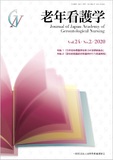Japanese
English
- 販売していません
- Abstract 文献概要
- 参考文献 Reference
抄録
研究目的は,通所サービスを利用する高齢者のサルコペニアの実態とその要因を認知機能障害(以下,認知障害)の有無で比較し,明らかにすることである.
対象者は,認知障害群57人と年齢・性をマッチングした非認知障害群57人の計114人であり,サルコペニアの有無,認知機能,栄養状態,活動状況を調査した.
サルコペニアの発生率は認知障害群50.8%,非認知障害群47.4%と有意差はなかった.しかし,通所サービスの利用頻度は,非認知障害群よりも認知障害群が有意に多く(p<.001),また認知障害群にのみサルコペニアを有する者は日常生活能力(p<.001)やサービス以外の複数の活動状況(p<.05)が低かった.ロジスティック回帰分析の結果,サルコペニアの影響要因として「女性」「低い栄養状態」「通所サービス以外の少ない外出頻度」が挙げられた.通所サービスを利用する高齢者のサルコペニアの予防には,女性の低栄養の予防や活動範囲の拡大に向けた支援の必要性が示唆された.
This study aimed to assess sarcopenia and related factors in older adults receiving day care services by comparing participants with cognitive impairment (CI) with participants with non-cognitive impairment (NC).
Participants were older adults (N = 114) receiving day care services. A CI group (n = 57) was matched with an NC group (n = 57) for age and sex. Sarcopenia, cognitive status, nutritional status, and activities at home were assessed for each participant.
There were no significant differences between the CI (50.8%) and NC groups (47.4%) in the prevalence of sarcopenia. Frequency of receiving day care services was significantly higher in participants of the CI group than in participants of the NC group (p<.001). In the CI group, activities of daily living (p<.001) and some activities at home (p<.05) were significantly lower in participants with sarcopenia compared with participants without sarcopenia. Multivariate logistic regression analysis revealed that “being a woman,” “low nutritional status,” and “low frequency of going outdoors (other than to the day care center)” were significantly related to sarcopenia.
This study suggests that improving nutrition and extending activity levels at home in women may prevent sarcopenia in older adults receiving day care services.
Copyright © 2020, Japan Academy of Gerontological Nursing All rights reserved.


